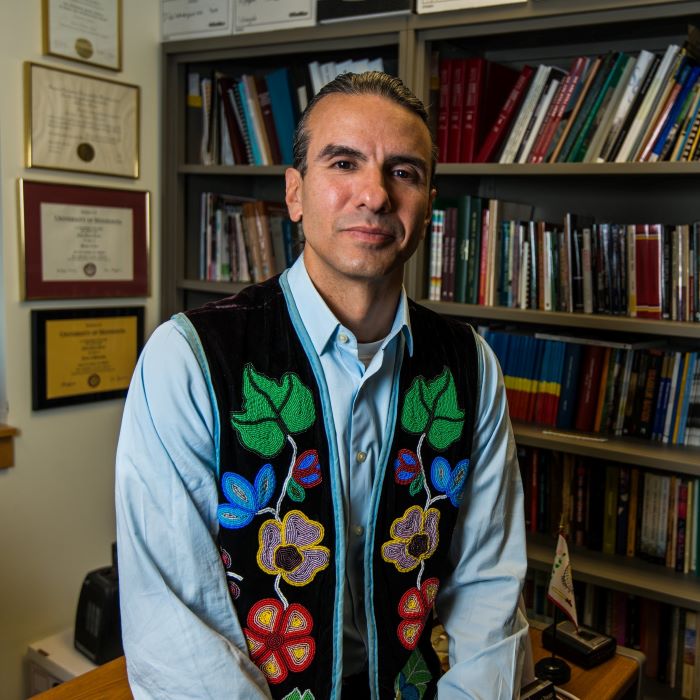Are David Treuer And Anton Treuer Related?

In the world of literature and academia, the names David Treuer and Anton Treuer frequently spark curiosity and intrigue. Both are accomplished figures who have made significant contributions to the understanding and appreciation of Native American culture and history. This article explores the relationship between these two influential individuals and delves into their respective achievements and the broader context of their work.
Understanding the Treuer Legacy
The Significance of Family Ties
The query about whether David Treuer and Anton Treuer are related is not just a matter of familial curiosity. It speaks to the broader interest in how familial ties can influence personal and professional trajectories, especially within cultural and intellectual circles. The Treuer brothers, as it turns out, are indeed related—David Treuer and Anton Treuer are brothers. This familial connection offers a unique perspective on their shared and individual contributions to Native American literature and scholarship.
| Name | Relationship | Notable Works | Field of Influence |
|---|---|---|---|
| David Treuer | Brother | "The Heartbeat of Wounded Knee," "Prudence" | Literature, Fiction, Non-Fiction |
| Anton Treuer | Brother | "Everything You Wanted to Know About Indians But Were Afraid to Ask," "Ojibwe in Minnesota" | Cultural Studies, Linguistics |
David Treuer: A Literary Voice
A Journey Through Words
David Treuer is celebrated for his profound storytelling and insightful explorations of Native American life. With a background in anthropology, his work often blurs the lines between fiction and non-fiction, offering readers a nuanced view of Native American experiences. His notable work, "The Heartbeat of Wounded Knee," challenges prevailing narratives about Native American history, offering a narrative that is both deeply personal and broadly resonant.
Furthermore, David's fiction, such as "Prudence," showcases his ability to weave complex characters and intricate plots, often reflecting the struggles and triumphs of Native American identity. His writing style is marked by its elegance and empathy, drawing readers into the rich tapestry of Native American life.
Contributions to Understanding and Awareness
David Treuer's contributions extend beyond literature. He actively engages in dialogues about Native American issues, using his platform to advocate for greater understanding and respect for Indigenous cultures. His work is instrumental in reshaping perceptions and inspiring new dialogues around Native American history and contemporary issues.
Anton Treuer: A Scholar and Advocate
Bridging Cultures Through Education

Anton Treuer is a distinguished scholar, educator, and advocate for the Ojibwe language and culture. His work focuses on language preservation and cultural education, critical areas in the fight to sustain and revitalize Indigenous traditions. Through his books, like "Everything You Wanted to Know About Indians But Were Afraid to Ask," Anton provides accessible insights into Native American life, addressing misconceptions and fostering greater cultural understanding.
In addition, his role as a professor and speaker allows him to reach diverse audiences, sharing the richness of Ojibwe culture and the importance of language preservation. Anton's dedication to education and advocacy plays a pivotal role in nurturing a deeper appreciation for Indigenous cultures.
The Impact of Linguistic Preservation
Language is a vital component of cultural identity and continuity. Anton Treuer's efforts in linguistic preservation are not just about saving words but about sustaining a way of life. By promoting the Ojibwe language, he helps ensure that future generations can connect with their heritage and maintain a vibrant cultural identity. His work is a testament to the power of language as a tool for cultural resilience and empowerment.
Shared Themes and Divergent Paths
Common Goals, Unique Approaches
While David and Anton Treuer share a commitment to promoting Native American culture and history, their approaches and areas of focus differ. David's work primarily explores themes through literature, creating narratives that challenge and enrich readers' understanding of Native American life. In contrast, Anton's focus on language and cultural education seeks to preserve and promote Indigenous knowledge systems.
Despite these differences, both brothers contribute to a broader movement aimed at fostering respect and understanding for Native American cultures. Their work highlights the diverse ways in which individuals can engage with and support cultural preservation and education.
Contributions to Broader Discourses
The Treuer brothers' contributions extend beyond their individual achievements. Together, they enrich broader discussions about identity, culture, and history. By exploring different facets of Native American life and addressing various audiences, they create a more comprehensive understanding of the challenges and triumphs facing Indigenous communities today.

Conclusion: The Legacy of the Treuer Brothers
In summary, David and Anton Treuer are not only brothers but also vital voices in the narrative of Native American culture and history. Their individual contributions, while distinct, complement each other in meaningful ways, showcasing the multifaceted nature of Indigenous experiences. From David's literary achievements to Anton's linguistic and cultural advocacy, the Treuer brothers embody a shared commitment to preserving and celebrating Native American heritage.
Reflecting on their work invites us to consider the broader implications of cultural preservation and the role each of us can play in supporting diverse narratives. By understanding their contributions, we gain a deeper appreciation for the complexities of Native American life and the enduring importance of cultural resilience.
As we conclude, it is essential to recognize the significance of familial and cultural ties in shaping individual and collective identities. The Treuer brothers, through their work, remind us of the power of shared heritage and the potential of individual efforts to foster lasting change.



Comments ()